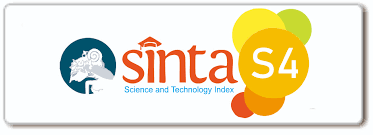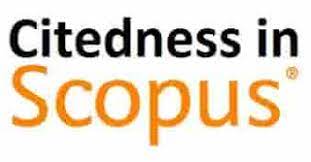Character and Peacebuilding in Islamic Pedagogy, 'Tazkiyah' and 'Taaruf' Concepts as A Case Study
DOI:
https://doi.org/10.59373/attadzkir.v3i1.50Keywords:
Islamic pedagogy, Tazkiyah & Taaruf, Peace education in Islam, Character educationAbstract
This study highlights how character and peacebuilding education is manifested within Islamic pedagogy. Islamic pedagogy promotes three crucial aspects to nurture character development: spirit, mind, and body. Its curriculum seeks to cultivate specific areas with the potential to create a healthy generation imbued with critical self-consciousness and critical other consciousness. This study examines two concepts deeply rooted in Islamic education philosophy, namely 'Tazkiyaah' and 'Taaruf', as critical elements shaping individual personality and broad cross-cultural relations. Islamic pedagogy is reenacting human character to contribute to designing a world that fits everyone, regardless of their differences. Islamic pedagogy is a teaching philosophy that focuses on the spirit, mind, body, and space. Spatial awareness is also needed for human beings; 'Taaruf' is the keyword in shaping this type of learning.
Downloads
References
Adela, N., & Ritonga, A. A. (2023). The Effectiveness of The Ta’lim Program in Strengthening Islamic Religious Education for Students. Nazhruna: Jurnal Pendidikan Islam, 6(3), 336–355. https://doi.org/10.31538/nzh.v6i3.3696
Adwiah, A. R., Tantia, A. F., & Rantikasari, I. A. (2023). Implementation of Storytelling Method with Folktales in Instilling Character Values in Children: A Study at ABA Warungboto Kindergarten. Golden Age: Jurnal Ilmiah Tumbuh Kembang Anak Usia Dini, 8(1), 47–57. https://doi.org/10.14421/jga.2023.81-05
Alam, A. (2022). Investigating Sustainable Education and Positive Psychology Interventions in Schools Towards Achievement of Sustainable Happiness and Wellbeing for 21st Century Pedagogy and Curriculum. ECS Transactions, 107(1), 19481. https://doi.org/10.1149/10701.19481ecst
Alam, M. (2020). A Collaborative Action in the Implementation of Moderate Islamic Education to Counter Radicalism. International Journal of Innovation, 11(7), 20.
Alkouatli, C. (2018). Pedagogies in Becoming Muslim: Contemporary Insights from Islamic Traditions on Teaching, Learning, and Developing. Religions, 9(11), 1–18. https://doi.org/10.3390/rel9110367
Ameriks, K., & Clarke, D. M. (2000). Aristotle: Nicomachean ethics. Londres: Cambridge University.
Amzat, I. H. (Ed.). (2022). Supporting Modern Teaching in Islamic Schools: Pedagogical Best Practice for Teachers. London: Routledge. https://doi.org/10.4324/9781003193432
Bahri, S. (2022). Pendidikan Akhlak Anak dalam Perspektif Imam Al-Ghazali. At-Tadzkir: Islamic Education Journal, 1(1), 23–41.
Balg, D. (2023). Moral Disagreement and Moral Education: What’s the Problem? Ethical Theory and Moral Practice. https://doi.org/10.1007/s10677-023-10399-9
Bauer, K., & Hermann, J. (2022). Technomoral Resilience as a Goal of Moral Education. Ethical Theory and Moral Practice. https://doi.org/10.1007/s10677-022-10353-1
Budiarto, M. A., & Salsabila, U. H. (2022). Optimizing Islamic Education Towards the Golden Era of Indonesia. Tafkir: Interdisciplinary Journal of Islamic Education, 3(1), 1–19. https://doi.org/10.31538/tijie.v3i1.105
Cheng, S.-L., Chang, J.-C., Quilantan-Garza, K., & Gutierrez, M. L. (n.d.). Conscientiousness, prior experience, achievement emotions and academic procrastination in online learning environments. British Journal of Educational Technology, n/a(n/a). https://doi.org/10.1111/bjet.13302
Dewey, J. (1909). Moral principles in education. Houghton Mifflin.
Diallo, I. (2012). Introduction: The interface between Islamic and western pedagogies and epistemologies: Features and divergences. International Journal of Pedagogies and Learning, 7, 175–179. https://doi.org/10.5172/ijpl.2012.7.3.175
Fadhil, M. Y., & Sebgag, S. (2021). Sufi Approaches to Education: The Epistemology of Imam Al-Ghazali. Nazhruna: Jurnal Pendidikan Islam, 4(1), 91–107. https://doi.org/10.31538/nzh.v4i1.834
Fiqih, U. F., Hanief, M., & Sutarno, S. (2022). The Implementation of The Mandatory Nature of Rasulullah in The Character Development of Students Through Learning of Akidah Akhlak. Nazhruna: Jurnal Pendidikan Islam, 5(2), 453–465. https://doi.org/10.31538/nzh.v5i2.2231
Garzón, J., Kinshuk, Baldiris, S., Gutiérrez, J., & Pavón, J. (2020). How do pedagogical approaches affect the impact of augmented reality on education? A meta-analysis and research synthesis. Educational Research Review, 31, 100334. https://doi.org/10.1016/j.edurev.2020.100334
H. Y, H. (2001). Lambs to the Slaughter. CA, Ihya Productions.
Habermas, J. (2003). Intolerance and discrimination. International Journal of Constitutional Law, 1(1), 2–12. https://doi.org/10.1093/icon/1.1.2
Habermas, J. (2004). Religious Tolerance—The Pacemaker for Cultural Rights. Philosophy, 79(1), 5–18. https://doi.org/10.1017/S0031819104000026
Hambali, & Zulkifli, M. Y. (2017, August 1). The Educational Thought of Muhammad Iqbal and Its Aplication Towards Indonesian Education. Presented at the PROCEEDINGS OF THE 1ST INTERNATIONAL CONFERENCE ON INNOVATIVE PEDAGOGY (ICIP) 2017. STKIP Bina Bangsa Getsempena. Retrieved from https://repository.bbg.ac.id/handle/repository.bbg.ac.id/handle/476
Hentschel, T., Heilman, M. E., & Peus, C. V. (2019). The Multiple Dimensions of Gender Stereotypes: A Current Look at Men’s and Women’s Characterizations of Others and Themselves. Frontiers in Psychology, 10, 11. https://doi.org/10.3389/fpsyg.2019.00011
Homiak, M. (2019). Moral Character. In E. N. Zalta (Ed.), The Stanford Encyclopedia of Philosophy (Summer 2019). Metaphysics Research Lab, Stanford University. Retrieved from https://plato.stanford.edu/archives/sum2019/entries/moral-character/
Jónsson, Ó. P., Harðarson, A., Sigurðardóttir, Þ. B., Jack, R., & Jóelsdóttir, S. S. (2021). Young People, Old Literature and Character Education in Icelandic Schools. Scandinavian Journal of Educational Research, 65(2), 212–225. https://doi.org/10.1080/00313831.2019.1659407
Kohlberg, L. (1966). Moral Education in the Schools: A Developmental View. The School Review, 74(1), 1–30. https://doi.org/10.1086/442759
Kohlberg, L. (2003). Moral Education. In Ethics: Contemporary Readings. Routledge.
Korotaeva, E., & Chugaeva, I. (2019). Socio-Moral Development of Preschool Children: Aspects of Theory and Practice. Behavioral Sciences, 9(12), 129. https://doi.org/10.3390/bs9120129
Lee, C.-Y., Pan, P. J. D., Liao, C.-J., Chen, H.-Y., & Walters, B. G. (2013). E-character education among digital natives: Focusing on character exemplars. Computers & Education, 67, 58–68. https://doi.org/10.1016/j.compedu.2013.02.020
Lickona, T. (2009). Educating for Character: How Our Schools Can Teach Respect and Responsibility. Random House Publishing Group.
Megawangi, R. (2004). Pendidikan karakter solusi yang tepat untuk membangun bangsa. Jakarta: Indonesia Heritage Foundation. Retrieved from https://scholar.google.com/scholar?cluster=13641316798755522497&hl=en&oi=scholarr
Mogra, I. (2010). Teachers and Teaching: A Contemporary Muslim Understanding. Religious Education, 105, 317–329. https://doi.org/10.1080/00344081003772089
Navarro-Castro, L., & Nario-Galace, J. (2010). Peace education: A pathway to the culture of peace. Retrieved from https://su-plus.strathmore.edu/handle/11071/6091
Nieuważny, J., Nowakowski, K., Ptaszyński, M., Masui, F., Rzepka, R., & Araki, K. (2021). Does change in ethical education influence core moral values? Towards history- and culture-aware morality model with application in automatic moral reasoning. Cognitive Systems Research, 66, 89–99. https://doi.org/10.1016/j.cogsys.2020.10.011
Piaget, J. (2013). The Moral Judgment Of The Child. London: Routledge. https://doi.org/10.4324/9781315009681
Qasserras, M. (2023). Critical Pedagogy in Abu Hamid Al-Ghazali and Paulo Freire: A Comparative Study. International Journal of Research Publication and Reviews, 4, 346–352. https://doi.org/10.55248/gengpi.4.1023.102609
Rahman, S. (2020). Rethinking Education: A Case for Tarbiyah in Contemporary Britain. Nazhruna: Jurnal Pendidikan Islam, 3(3), 444–455. https://doi.org/10.31538/nzh.v3i3.1129
Rahman, S. (2021). Rethinking Islamic Pedagogy: The Interface of Theology and Tafsīr. Nazhruna: Jurnal Pendidikan Islam, 4(1), 46–59. https://doi.org/10.31538/nzh.v4i1.1111
Rayan, S. (2012). Islamic Philosophy of Education. Retrieved from https://www.academia.edu/70354991/Islamic_Philosophy_of_Education
Ridwan, M. (2018). Konsep Tarbiyah, Ta’lim Dan Ta’dib Dalam Al-Qur’an. Nazhruna: Jurnal Pendidikan Islam, 1(1), 37–60. https://doi.org/10.31538/nzh.v1i1.41
Susanti, S., & Rokhman, M. (2022). Fostering Learners’ Interpersonal Intelligence through Religious Extracurricular Activities: A Case Study in An Islamic School. Tafkir: Interdisciplinary Journal of Islamic Education, 3(1), 92–104. https://doi.org/10.31538/tijie.v3i1.115
Voltaire. (2016). Treatise on Toleration. Penguin UK.
Wringe, C. (2006). Moral Education: Beyond the Teaching of Right and Wrong. Springer Science & Business Media.
Downloads
Published
How to Cite
Issue
Section
License
Copyright (c) 2024 Mohammed Qasserras

This work is licensed under a Creative Commons Attribution-ShareAlike 4.0 International License.

At-Tadzkir: Islamic Education Journal by Perkumpulan Dosen Tarbiyah Islam Indonesia is licensed under a Creative Commons Attribution-ShareAlike 4.0 International License.
Based on a work at http://at-tadzkir.pdtii.org/index.php/tadzkir/index.








